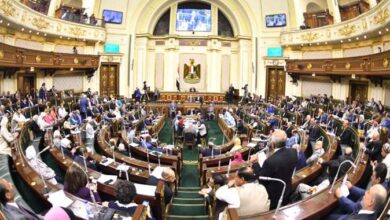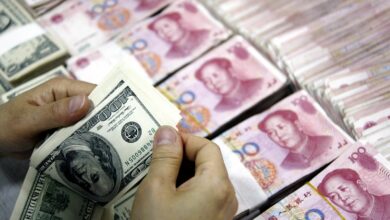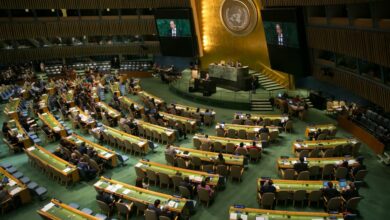Egypt is seeking $10 billion in funding from global lenders and rich nations to cope with the costs of the mass protests that toppled the country's long-time ruler, Egypt's finance minister said on Thursday.
Samir Radwan told Reuters in an interview he was looking for a declaration of support from the Group of Seven rich countries and from global development banks, such as the World Bank, when he meets with them later on Thursday in Washington.
"I will be asking them for help," Radwan told Reuters at the IMF headquarters ahead of a semi-annual gathering of global finance ministers in Washington. "My immediate priority is to ease the fiscal strains."
Anti-government protests fueled by soaring prices, unemployment and repression brought much of Egypt's economy to its knees for nearly three weeks until President Hosni Mubarak, the country's ruler for 30 years, resigned on 11 February.
Radwan, an economist who worked at the International Labor Organization for 28 years, replaced Youssef Boutros-Ghali as finance minister in January after Mubarak dismissed his cabinet to meet protesters' demands.
A collapse in Egypt's tourism and foreign investment since protests erupted have hit revenues especially hard in the Arab world's most populous country.
Radwan said Egypt's budget deficit would surge somewhere between 9.1 to 9.2 percent of gross domestic product in the financial year beginning in July, up from 8.5 percent this financial year.
"From now until the end of June, I need $2 billion and for the next financial year, I need something like $8 billion," he said.
Egyptian Planning Minister Faiza Abul Naga told the US Chamber of Commerce in Washington that Egypt had asked the United States to forgive about $3.6 billion in debt to help the country restore growth.
Both ministers acknowledged their requests faced difficulties at a time when the United States was grappling with its own huge budget deficit.
Meeting high expectations
Radwan said Egypt's new government was under pressure to work quickly to meet "high and mounting" demands from street protesters for jobs and better wages.
He did not rule out a lending program from the International Monetary Fund but said any agreement should take into consideration the government's needs to deal with immediate social problem and ensure stability.
"The IMF is very important to us, not just for money, but to help to continue the reform process…We are not ruling anything out," he said, noting that any IMF deal would have to fit with the government's plans for measures to stabilize the economy and boost output.
He said support from the World Bank was equally important to support the government's initiatives to strengthen governance by tackling corruption and improving transparency.
Radwan said an economic growth rate of between 1 and 2 percent was not enough to help Egypt recover while removing subsidies was not politically feasible right now given still smoldering social tensions.
"I can't touch subsidies now … because the perception of the people is that subsidies are good for the poor," he said.
Egypt subsidizes key food staples and energy among other products.
Radwan said Egyptian inflation was running at 11.5 percent but food prices were rising by between 16 and 24 percent. Inflation was likely to ease next year amid government expectations of a bumper wheat crop, Radwan added.




